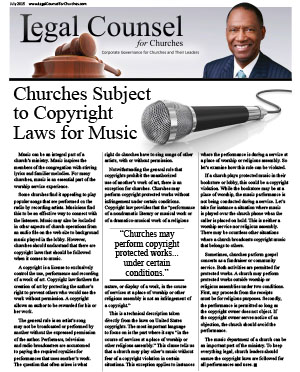If your church has recently made an application for a bank loan, you may have noticed a different tone from your banker. Your banker may be asking for more information than the last time you applied for a loan. Some of the terms may seem a bit more burdensome. There is a good reason why your banker may be pickier this time around.
The financial turndown in the economy has left banks and other financial institutions a little shy about taking risks with nonprofit organizations. This is because the number of defaults for churches and nonprofits increased during the recession. Now that the economy is showing signs of a sustained recovery, some churches want to get back to business as usual. Your banker may be a little more hesitant.
Banks are scrutinizing church loan applications more closely than ever. The level of inspection varies. Your banker may require more detailed financial statements for new loans. The requirement for the minimum amount of cash on hand, usually called liquidity, may be higher than what you have been accustomed to keeping. Church operating expenses are studied more thoroughly. This is all done to ensure the church has adequate support to make the loan payments on time.
Churches should understand that most banks want to say yes to a loan application. It’s just that the rules and regulations banks must follow have become more onerous over the past few years. Banks have to abide by federal and state regulations. Bank laws on lending and operations have become more taxing in recent years. Banks have to answer more questions to their regulators when their borrowers face hard times. This is part of the reason banks are tougher to negotiate with for new loans.
Churches can improve their success rate for getting a bank loan with a few simple tips.
First, the bank wants to have confidence that the church officials understand basic financial management. The church treasurer should be able to engage with the bank on topics such as expense control, debt service and operations management. Having a qualified treasurer or church representative negotiate with the bank will give the bank a sense of confidence that the church is in good management hands.
Secondly, the church should have a good set of records to show how it has performed in the past. The records may include a statement of financial condition (balance sheet), statement of activities (income and expense statement), annual audits and information on the church member population. If church records are in order and efficiently stored, the church will be able to respond quickly to bank inquiries. This will help the loan application process flow smoothly.
Thirdly, a bank will pay attention to see if a church follows sound corporate governance throughout the loan process. Many churches have a set of prescribed processes for borrowing money. The process is usually defined in the bylaws and church policies. The church should be prepared to provide evidence of its policies and minutes of meetings to document that the proper authority was given to church officials to make certain decisions.
Finally, the church should develop a positive relationship with their banker. A banking relationship is preferred if times were to become challenging someday. A church could face a cash crunch if its membership giving dips because of the local economy or adverse weather. Also, a church could need extra funds for repairs and expansion. A relationship helps bankers know the church well enough to be flexible if the time comes.
Be aware of the ways to improve your banking relations. You can minimize the stress of applying for a bank loan by being prepared.

